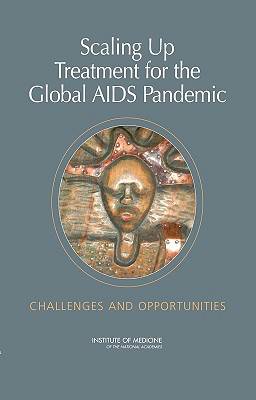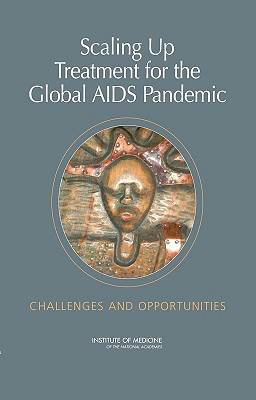
- Retrait gratuit dans votre magasin Club
- 7.000.000 titres dans notre catalogue
- Payer en toute sécurité
- Toujours un magasin près de chez vous
- Retrait gratuit dans votre magasin Club
- 7.000.0000 titres dans notre catalogue
- Payer en toute sécurité
- Toujours un magasin près de chez vous
Scaling Up Treatment for the Global AIDS Pandemic
Challenges and Opportunities
Institute of Medicine, Board on Global Health, Committee on Examining the Probable Consequences of AlternativeDescription
An estimated forty million people carry the human immunodeficiency virus (HIV), and five million more become newly infected annually. In recent years, many HIV-infected patients in wealthy nations have enjoyed significantly longer, good-quality lives as a result of antiretroviral therapy (ART). However, most infected individuals live in the poorest regions of the world, where ART is virtually nonexistent. The consequent death toll in these regions--especially sub-Saharan Africa--is begetting economic and social collapse.
To inform the multiple efforts underway to deploy antiretroviral drugs in resource-poor settings, the Institute of Medicine committee was asked to conduct an independent review and assessment of rapid scale-up ART programs. It was also asked to identify the components of effective implementation programs.
At the heart of the committee's report lie five imperatives:
- Immediately introduce and scale up ART programs in resource-poor settings.
- Devise strategies to ensure high levels of patient adherence to complicated treatment regimens.
- Rapidly address human-resource shortages to avoid the failure of program implementation.
- Continuously monitor and evaluate the programs to form the most effective guidelines and treatment regimens for each population.
- Prepare to sustain ART for decades.
Spécifications
Parties prenantes
- Auteur(s) :
- Editeur:
Contenu
- Nombre de pages :
- 344
- Langue:
- Anglais
Caractéristiques
- EAN:
- 9780309092647
- Date de parution :
- 24-12-04
- Format:
- Livre broché
- Format numérique:
- Trade paperback (VS)
- Dimensions :
- 165 mm x 227 mm
- Poids :
- 548 g

Les avis
Nous publions uniquement les avis qui respectent les conditions requises. Consultez nos conditions pour les avis.






